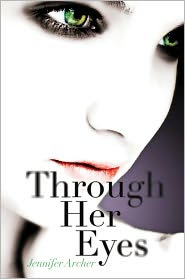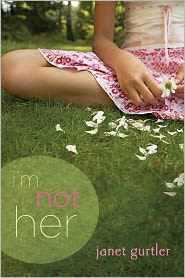
When Alison wakes up in a mental hospital, she doesn't understand at first why she is there. But as her memory comes back to her, it becomes clear that something has gone very wrong. She had a fight with popular girl Tori and somehow Tori seemed to disintegrate in front of her. It would be easy to assume it was an hallucination, but no one can find a trace of Tori and without a body, Alison's story is the only explanation that works. Not that Alison hasn't had issues with seeing things before: she sees sounds, tastes colors, and feels things she shouldn't be able to feel. But despite the recent trauma and her overall fragile state, she's convinced that she's really sane. However, it's not until a visiting researcher tells her about synesthesia that she starts to understand herself. That's when things go seriously weird.
I like the topic of synesthesia and particularly enjoyed Wendy Mass's A Mango-Shaped Space and her treatment of the condition. I also liked the first half of this book -- sort of a I Never Promised You a Rose Garden-One Flew Over the Cuckoo's Nest mash-up -- for its depiction of a young woman confronting a series of unsympathetic family and professionals. At times Alison seemed overly whiny, but she could kick it when she needs to and that made her interesting and a believable combination of strength and weakness. However, the ending is simply bizarre (quite literally deus ex machina). Until I was well past the 200th page, the book read like realistic fiction, but then a new story mugs and tackles the old one, taking us off into the stars in an extraordinarily flat and tedious ending. Worse than simply hijacking the plot, these last 80 pages completely change the characters, rewriting everything we've come to understand about Alison (and Tori) in the first part. In my mind, a decent book was basically ruined.








































